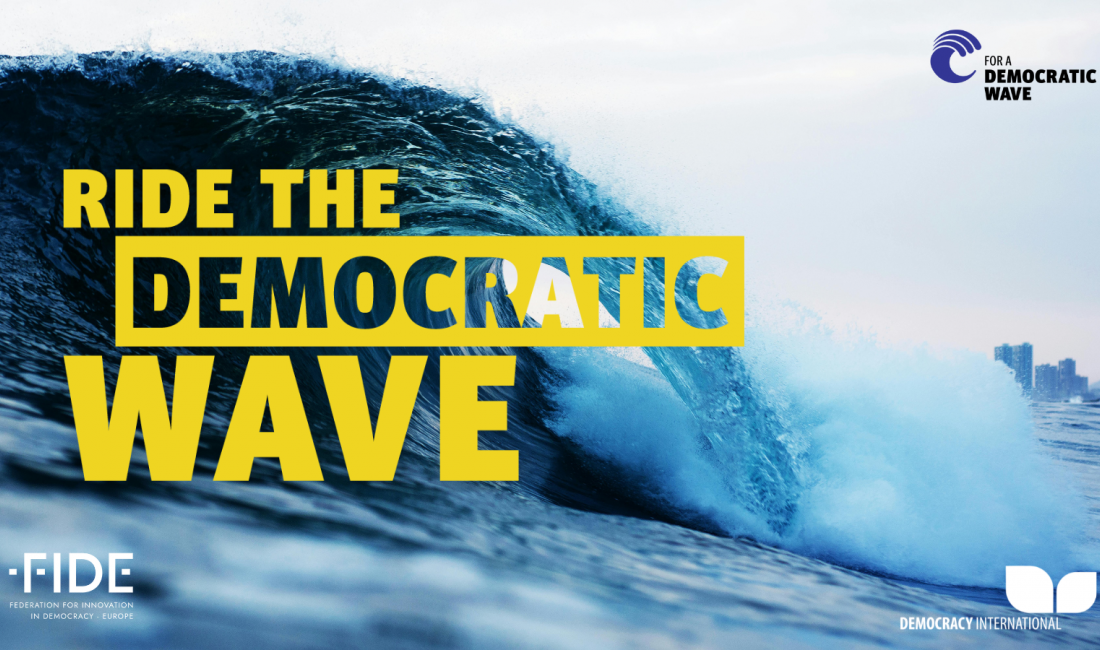Ahead of the European elections, we ran our Democratic Wave campaign together with FIDE – Europe to mobilise candidates to pledge their commitment to strengthening democracy in the EU in the next parliamentary term. Well, instead of a Democratic Wave, the election results gave us more of a Democratic Splash in the election results, leaving much work to be done to strengthen democracy in the EU.
The pro-European groups did manage to hold their majority in the European Parliament, but instead of celebrating, we rather took a sigh of relief that it wasn’t a wide-scale anti-European wave that some had feared. The relief wasn’t felt for long, as it became immediately clear that the far-right parties would have their record gains in the EU elections, and that we will have an uphill battle coming.
Some of the most concerning results include:
- Young people in Germany especially tend to vote center or far-right. For 16-24year olds who exercised the right to vote for the first time, the conservative CDU received the most of the vote with 17%, however the far-right AfD received second place among this age group with 16% of the vote. (Tagesschau)
- In France, the far-right RN led by Marine Le Pen walked away with 31% of the vote, triggering President Macron to dissolve Parliament and call for snap elections, which are still underway at the time of writing. (Politico) It may be the most extreme example of how European politics have had a direct influence on national politics.
- In Austria, the far-right FPÖ received the most votes, with 25%. (European Parliament) Austria will hold federal elections in September.
In good news:
- Hungary’s far-right Fidesz party did worse than expected at 44%, losing its absolute majority across all elections for the first time in 20 years. Meanwhile, the new centrist Tisza party won 30% of the votes, making it Fidesz’s first real challenger in a long time. (Politico)
- In Poland the far-right PiS party lost 10% of its votes and the pro-European Civic Coalition gained a majority with 37% of the votes. (European Parliament)
- The voter turnout increased slightly from 50.7% to 51.1% - marking the highest turnout for EU elections in 25 years!
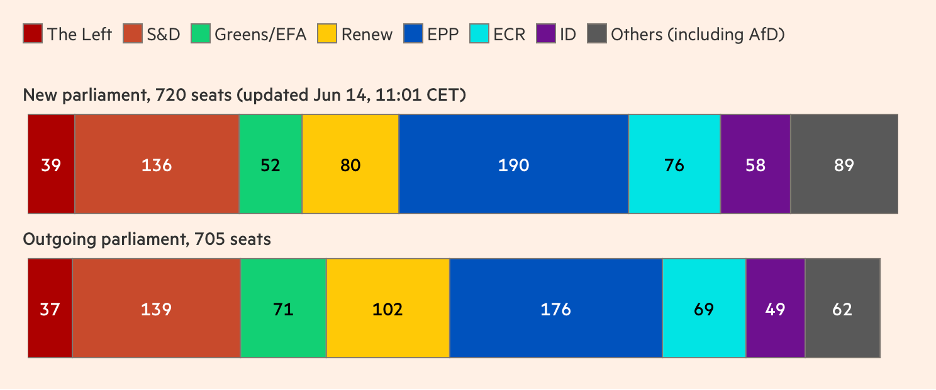
Seat Distribution in the European Parliament in 2019 and 2024. Source: Financial Times
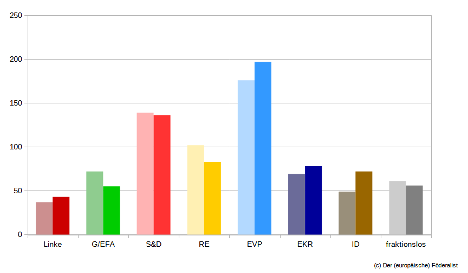
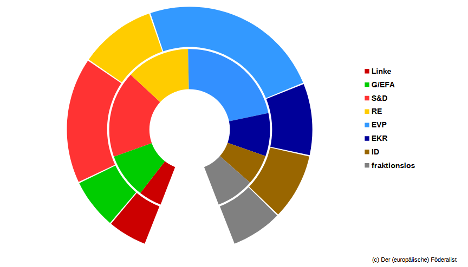
The Greens, who enjoyed the biggest net gain in 2019, suffered the most significant losses this time around.
Despite these shifts, the largest pro-European groups (EPP, S&D, Greens/EFA, Renew) still make up a comfortable majority in the Parliament. Collectively, these groups hold 454 of the 720 seats.
What does this mean for our Democratic Wave campaign? Well, it just got a lot more serious.
With the rise of the far-right in the European Parliament, we can expect that the parties elected will continue to do at EU level what they have attempted, and in many cases successful managed, to do at some national or regional levels: scale back our democracy.
In a time of global political uncertainty and instability, we simply cannot afford to have a backsliding of European democracy. We will need a resilient, strong, and citizens-centered democracy led by the pro-democratic and pro-European groups in the European Parliament.
Over 250 candidates from all five pro-European political groups signed the pledge, demonstrating widespread support for a more democratic Europe. Currently, of these, 29 candidates from five pro-European groups and 13 countries became newly elected Members of European Parliament! This is a great starting point for identifying our allies in the next European Parliament.
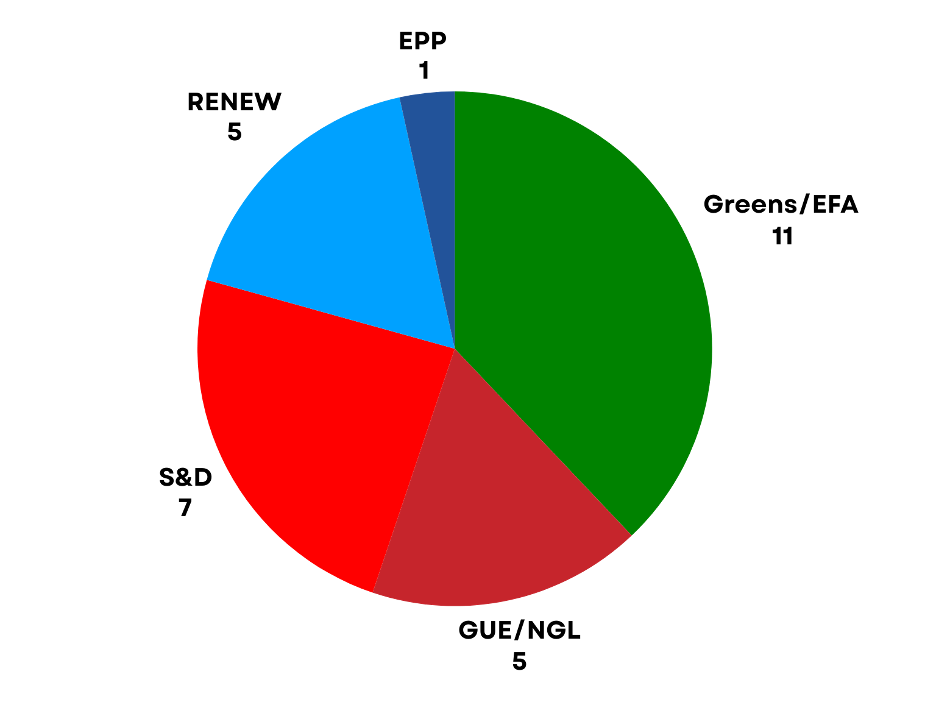
The European Parliament however remains without an intergroup (a parliamentary interest group) on democracy — a glaring omission in the house of European democracy. In times when democratic and European values are under siege globally, the need for a dedicated democracy intergroup is more urgent than ever.
An intergroup on democracy would serve as a coalition of democracy champions, providing a platform for MEPs to collaborate on strengthening democratic processes and citizen participation. It would act as a forum for exchange, bringing together MEPs, civil society organisations, and citizens to discuss and advocate for democratic reforms, proposals, or strengthening.
The establishment of a democracy intergroup would furthermore give us the opportunity to:
1. Strengthen Citizen Participation: Advocate for stronger democratic mechanisms like the European Citizens’ Initiative and the European Citizens’ Panels, ensuring citizens have a meaningful voice in EU policymaking.
2. Foster Collaboration: Serve as a bridge between MEPs and civil society, fostering a collaborative approach to democracy enhancement.
3. Identify Allies: Clearly identify and unite MEPs who are committed to democratic principles, creating a powerful coalition within the Parliament.
As we move forward, we will continue to identify and work with the newly elected MEPs to support and strengthen European democracy. The stakes are high, and the challenges are formidable, but we can make the European Parliament a true guardian of European democracy.
